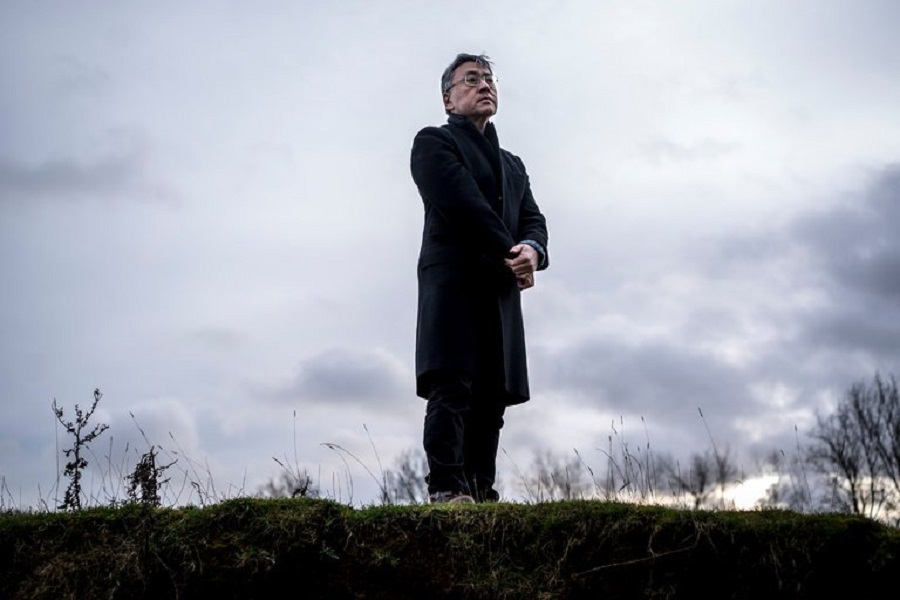Kazuo Ishiguro, the Japanese-born British novelist best known for ‘The Remains of the Day,’ won the Nobel Literature Prize on Thursday.
The academy said that Ishiguro’s eight books are works of emotional force that uncover “the abyss beneath our illusory sense of connection with the world.”
Nobel Prize returning to conventional literature
The choice of British novelist Ishiguro marks a return to conventional literature after two consecutive years in which the prize went to non-traditional recipients. Singer-songwriter Bob Dylan and Belarusian journalist Svetlana Alexievich.
“He’s a very interesting writer in many ways. I would say that if you mix Jane Austen — her comedy of manners and her psychological insights — with Kafka, then I think you have Ishiguro,” said Sara Danius, the academy’s permanent secretary.
“He doesn’t look to the side. He has developed an aesthetic universe all his own,” she added.
In a statement released by his publisher, Ishiguro expressed astonishment at the award. He called it, “amazing and totally unexpected news.”
“It comes at a time when the world is uncertain about its values, its leadership, and its safety,” he wrote.
“I just hope that my receiving this huge honor will, even in a small way, encourage the forces of good will and peace at this time.”
The British novelist is best known for his novels ‘The Remains of the Day,’ about a butler serving an English lord in the years leading up to World War II, and ‘Never Let Me Go,’ a melancholy dystopian love story set in a British boarding school.
His work
In his novels, he has obsessively returned to the same themes, including the fallibility of memory, mortality and the porous nature of time.
In a career that spans some 35 years, Ishiguro has gained wide recognition for his idiosyncratic, emotionally restrained prose style. His novels are often narrated in the first person, by unreliable narrators who are in denial about truths that are gradually revealed to the reader.
The resonance in his novels often comes from the rich subtext. The things left unsaid, and gaps between the narrator’s perception and reality.
The Nobel Prize in Literature is given in recognition of a writer’s entire body of work rather than a single title. Past winners have included international literary giants like Saul Bellow, Ernest Hemingway, Gabriel García Márquez and Toni Morrison.
In other years, the academy has selected obscure European writers whose work was not widely read in English, including French novelist J. M. G. Le Clézio (2008), the Romanian-German writer Herta Müller (2009), the Swedish poet and translator Tomas Transtromer (2011) and the French novelist Patrick Modiano (2014).
Of the 114 winners who have received the prize since it was first awarded in 1901, 14 have been women.
BREAKING NEWS The 2017 #NobelPrize in Literature is awarded to the English author Kazuo Ishiguro pic.twitter.com/j9kYaeMZH6
— The Nobel Prize (@NobelPrize) October 5, 2017
About Ishiguro
Born in 1954 in Nagasaki and educated in Britain, Kazuo Ishiguro is known for, among other things, his lyrical prose, his acute sense of place and for his masterful parsing of the British class system.
Ishiguro was born in Japan, the son of an oceanographer, and moved to Surrey when he was 5 years old. He attended Woking Grammar School, a school that he told The Guardian was “probably the last chance to get a flavor of a bygone English society that was already rapidly fading.”
In an interview with The Times two years ago, he said that he had discovered literature as a young boy when he came upon Sherlock Holmes stories in the local library.
“I was around 9 or 10, and I not only read obsessively about Holmes and Watson. I started to behave like them. I’d go to school and say things like: ‘Pray, be seated’ or ‘That is most singular.’ People at the time just put this down to my being Japanese,” he said, adding that he was attracted to the world of Conan Doyle because it was “so very cozy.”
After studying English and philosophy at the University of Kent, in Canterbury, he spent a year writing fiction. Eventually gaining a master of arts in creative writing, and studied with writers such as Malcolm Bradbury and Angela Carter.
He is also a musician, kind of
In his 20s, he wanted to be a singer-songwriter, a pursuit he failed at, but one that later helped to shape his spare, first-person prose style. He has written lyrics for the American jazz singer Stacey Kent and still plays jazz and acoustic guitar, “no worse than the average amateur,” he said.
“My friends and I took songwriting very, very seriously,” he told The Guardian in an interview.
“My hero was and still is Bob Dylan, but also people like Leonard Cohen and Joni Mitchell and that whole generation. We would endlessly discuss the relationship between words and music and how they had to come alive within the context of performance.”
Ishiguro stood out early among the literary crowd. In 1983, he was included in Granta’s best of young British writers list. Joining luminaries such as Martin Amis, Ian McEwan, and Salman Rushdie.
Now he adds a Nobel Prize to his remarkable career.

Source: NPR


